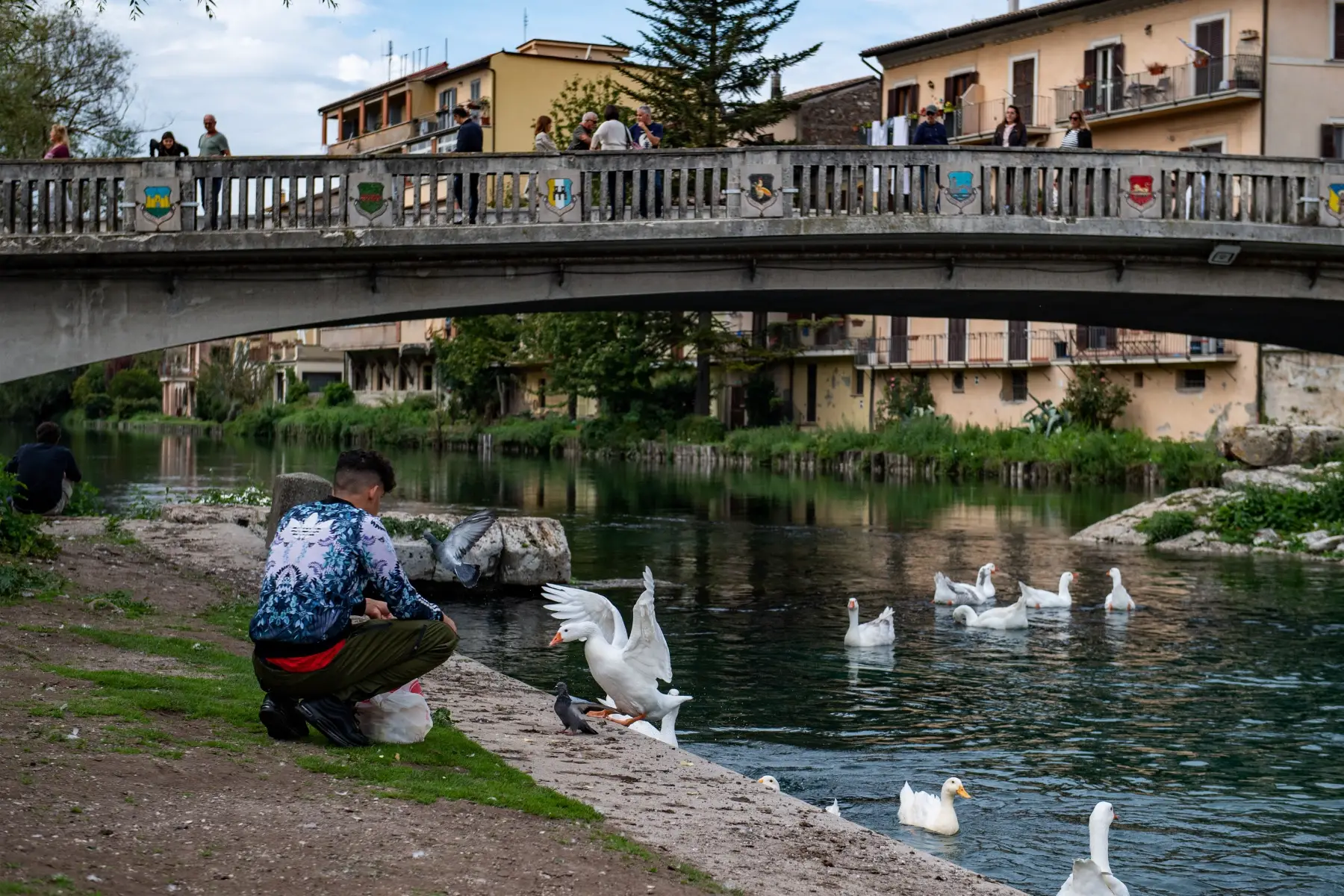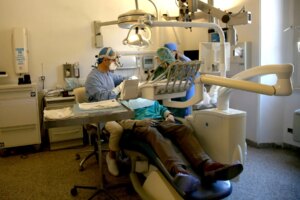In Italy, the SSN offers mental health support ranging from therapy to psychiatric care, though the government allocates only a small percentage of healthcare funds to these services. Some public services are free while others require a health ticket (ticket sanitario) fee, but waiting times can be lengthy and access varies by region.
Many residents turn to private care instead which may be covered by insurance, and charities and helplines provide additional support. Ultimately, mental health services are available but underfunded in Italy, so they require patience and persistence to access.
Keep reading for more information on the following topics:
- How does mental healthcare work in Italy?
- How to access mental health services in Italy
- Private and international health insurance for mental healthcare
- Psychologists, psychiatrists, and therapists in Italy
- Italian addiction support services
- Services dealing with eating disorders in Italy
- Support for those with severe symptoms or long-term conditions
- Mental healthcare for children and young people
- Mental healthcare services for special groups in Italy
- Emergency support and crisis lines
- Useful resources
Cigna Global
Enjoy peace of mind while living in Italy with Cigna Global’s long-term international health insurance plans (12+ months). Get tailored coverage, direct billing with many providers, complex case management, and global care on demand, with access to a network of 1.5+ million doctors, specialists, and therapists.
How does mental healthcare work in Italy?
The Italian Ministry of Health (Ministero della Salute) is the government department responsible for healthcare, including mental health services. Each region has a local health authority (Azienda Sanitaria Locale – ASL) overseeing all medical needs, including doctors, hospitals, and dentists. Of course, public services also include psychologists, psychiatrists, and mental health facilities for free or at least widely affordable.
However, the public system is overstretched, resulting in longer wait times. Out of the 130,000 psychologists in Italy, only 5% work in the public healthcare system, according to Davide Baventore, the vice-president of Lombard Order of Psychologists (Consiglio Nazionale Ordine Psicologi).
Because of this, most Italians go private. You can find independent psychologists and psychiatrists who charge for their sessions throughout Italy. The advantage of these services is that you can see a therapist quicker.

Although there used to be a stigma associated with seeking mental health care, Italians are changing their views. According to a 2022 survey of over 1,000 people aged 18 to 65, around 76% of participants stated that seeking care from a psychiatrist (psichiatra) or psychologist (psicologa/psicologo) is not something to hide.
How to access mental health services in Italy
First, to access mental health services in Italy, you must register with the Italian healthcare system. Afterward, you can choose your general practitioner (GP) and receive your tessera sanitaria (health card).
If you wish to access free or affordable care from a psychologist or psychiatrist, you must request a referral from your doctor or GP. However, your GP has the training to provide basic mental healthcare for less severe issues.
Next, you can call your local ASL to book an appointment. Usually, the first visit is free, but for follow-up appointments, you will need to pay a small fee or health ticket, which differs between regions.

In Italy, you can look for a public facility called consultorio. They are widely available throughout Italy and offer various services, including free mental healthcare. Again, the wait times for a public mental health service can be anything from a few weeks to months. Conversely, private psychologists and psychiatrists tend to have more availability, usually within a few days, and don’t require a GP referral.
Italy’s Bonus Psicologo, or Psychological Bonus program
The Bonus Psicologo (Psychological Bonus) is Italy’s government-funded psychological support program that provides up to €1,500 to help cover private psychotherapy costs. To qualify, you need a valid ISEE (Italy’s income assessment) under €50,000 – there are no age limits or residency duration requirements.
The benefit amount depends on your income: €1,500 for ISEE under €15,000, €1,000 for €15,000–30,000, and €500 for €30,001–50,000. The bonus covers up to €50 per session with participating private psychologists and psychotherapists.
You can submit an application for the bonus on the INPS website using SPID or your Electronic Identity Card, with the 2025 application period expected to open between late June and early July. Priority goes to those with lower incomes, then by application submission order.
Be aware that demand far exceeds funding – in 2023, only about 3% of applications were successful, so apply as soon as the window opens if you’re interested. You’ll receive a unique code to use with participating therapists, which must be used within 270 days of approval.
Private and international health insurance for mental healthcare
If you decide to use private health insurance for your mental healthcare coverage in Italy, you have a choice between a local provider and an international health insurance plan that caters specifically to expats.
A few of the largest international health insurance companies operating in Italy that offer mental health coverage as part of some expat plans include:
Psychologists, psychiatrists, and therapists in Italy
Italy has many options to get the best care if you are looking for a therapist or psychiatrist. A psychologist or therapist in Italy is a licensed professional who can help manage mental health symptoms through talk therapy. Comparatively, a psychiatrist is a medical doctor able to treat mental health disorders through medication in addition to treatment.

Whether you book privately or publicly, you must show your identification (e.g., passport, residence card, or ID number) and health card at your appointment. Once all your details are confirmed, your mental health professional will conduct the session, which remains confidential under Italian law.
Mental healthcare fees in Italy start from €50 for a psychologist and €120 for a psychiatrist. If you wish to find an English-speaking therapist, you can check out the following:
Italian addiction support services
If you are seeking help for drug or alcohol addiction, your GP is your first point of contact if you wish to use the public system. Your doctor will refer you to a mental health professional or a public rehabilitation center. Depending on availability, location, and the severity of the situation, you may have to wait a few weeks or months to receive care.
Alternatively, private rehabilitation facilities are widely available throughout Italy and can be accessed without a referral, such as Centro San Nicola or San Patrignano. Some private insurance plans cover part or all the rehabilitation costs. In addition, you can contact a private psychiatrist or therapist to help you manage a drug or alcohol addiction.
Italy also has many non-profit organizations that work to help people overcome addiction. These often have local support groups such as:
- Alcolisti Anonimi: the Italian version of Alcoholics Anonymous (AA); a support group for alcohol addiction with meetings all over Italy and assistance finding treatment plans
- Narcotici Anonimi: offers assistance and support groups for those struggling with drug addiction, can also assist with rehabilitation centers and treatment plans
Addiction helplines
The Italian government and private facilities offer assistance for drug and alcohol addiction all over the country. You can find a list of helplines – in English and Italian – on The Higher Institute of Health (Istituto Superiore di Sanità – ISS) website, specifically:
| Line | Organization | Phone |
| Alcohol Helpline (Il Telefono Verde Alcol – TVAl) | Smoking, Alcohol and Drugs Observatory (OFAD) (dell’Osservatorio Fumo, Alcol e Droga – OssFAD) | 800 632 000 |
| Drug Helpline (TVD) | National Addiction and Doping Center (Centro nazionale Dipendenze e doping) | 800 186 070 |
Services dealing with eating disorders in Italy
You can access various government healthcare organizations, non-profit associations, and private facilities for support if you have an eating disorder. For example, the National Centre for Addiction and Doping and the Ministry of Health have a registry – Piattaforma Disturbi Alimentari – detailing all services that assist with eating disorders.
The national helpline for anorexia, bulimia, and binge eating disorders is 800 180 969.

Furthermore, you can reach out to the Associazione Bulimia e Anoressia (ABA). The association has support groups that help individuals to seek treatment.
You can also find psychologists, psychiatrists, and treatment facilities specialized in eating disorders throughout Italy. Of course, if you access these public services via your local hospital, ASL, or GP, you won’t be charged or only pay a small fee.
Otherwise, private options are available at a cost but with shorter wait times. Check with your insurance provider, as they may cover all or part of the treatment.
Support for those with severe symptoms or long-term conditions
For individuals with severe psychiatric symptoms or long-term mental health conditions, Italy’s public healthcare system provides specialized services through Centri di Salute Mentale (CSM) – community mental health centers located in each health district. These centers serve as the primary access point for comprehensive psychiatric care, offering crisis intervention, ongoing treatment, and case management services.
To access a CSM, you’ll need a referral from your family doctor or you can go directly during a mental health crisis. Services include psychiatric consultations, psychological support, medication management, and social rehabilitation programs, with most covered under the SSN with minimal or no cost.
For more intensive support, Italy operates Centri Diurni (day centers) and residential facilities for individuals requiring structured care while maintaining some independence. In psychiatric emergencies, you can access 24-hour services through hospital emergency departments or specialized psychiatric emergency services (SPDC – Servizio Psichiatrico di Diagnosi e Cura) located within general hospitals.
While these services are comprehensive, waiting times can be significant, and language barriers may pose challenges for expats – consider asking about interpreter services or seeking facilities with multilingual staff when making initial contact.
Mental healthcare for children and young people
Children in Italy can use most public healthcare services for free or at low cost, including pediatric visits and mental healthcare. However, minors (those under age 18) need parental consent to access mental health services.
If you are worried about your child’s mental health, your first point of contact will be their doctor. They would assess the situation and, if necessary, refer your child to a pediatric psychologist, psychiatrist, or mental health facility.

You can also contact your local consultorio familiare, a public facility that offers free mental health assistance to families. Families can sometimes request a psychologist at school, if one is available.
Mental healthcare services for special groups in Italy
Italy has multiple non-profit organizations and government programs that provide support to particular groups free of charge. The Italian Ministry of Health also funds programs and crisis lines for women who are survivors of domestic violence, migrants, and people with disabilities.
Special group helplines
Some resources available for special groups in Italy are:
| Group | Type of support | Organizations | Helplines |
| Women | Support for survivors of domestic violence | Associazione Frida | 1522 |
| Migrants and refugees | Mental health services, support groups, and assistance | Crinali Cooperativa | 02 843 5598 |
| People with disabilities | Mental healthcare services and other support groups | Database of organizations | See database |
| People with disabilities | Report discrimination | Association for Disabled Citizens (L’Associazione Invalidi Civili – ANMIC) | 800 572 775 |
Your GP or local ASL can also assist you with specific mental healthcare services in the public system.
Emergency support and crisis lines
In the case of an emergency, call 112, or for urgent medical care, 118. You can find a list of Italy’s suicide prevention hotlines on findahelpline.com. TelefonoAmicoItalia runs a suicide prevention hotline on 02 2327 2327
The main crisis lines for people struggling with addiction are:
| Service | Number |
| Support with drug addiction | 800 186 070 |
| Support with alcohol addiction | 800 833 833 |
| For issues with smoking | 800 554 088 |
| Anti-Doping | 800 896 970 |
| Support for gambling addiction | 800 558 822 |
The Italian government also set up crisis lines for people with depression, eating disorders, or other mental health problems, including:
| Service | Number |
| Crisis line for eating disorders | 800 180 969 |
| Helpline for psychological support | 800 833 833 |
| Psychiatric support for people with mental health disorders or their family | 800 274 274 |
| Helpline for victims of violence and stalking | 1522 |
| Crisis line for older adults | 800 995 988 |
| Helpline for children and adolescents with mental health, family, or school related problems | 196 96 |
| Support for families of children with disabilities | 800 090 122 |
Useful resources
- Salute – the Italian Ministry of Health website
- Istituto Superiore di Sanità (ISS) – the technical-scientific body of the Italian National Health Service, performs research and training for public health
- Mio Dottore – database of mental health professionals
- DoctorsinItaly – directory for English-speaking psychiatrists or psychologists




